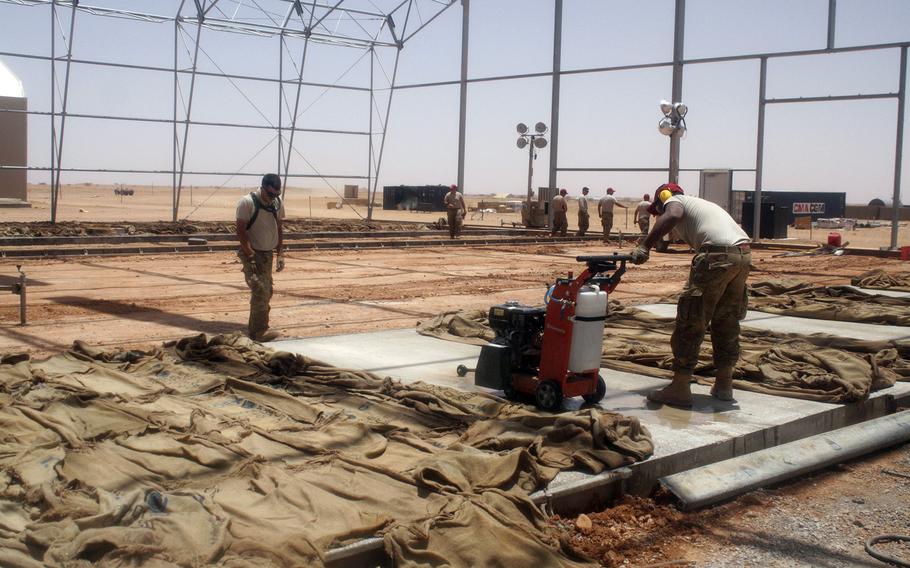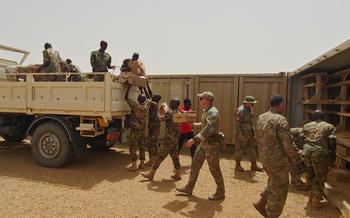
Airmen work on the drone apron at Air Base 201 in Agadez, Niger, in 2018. At the time, the base was touted as the largest U.S. Air Force-led construction project in history. The Defense Department said Aug. 5, 2024 that the withdrawal of troops from the base is complete. (John Vandiver/Stars and Stripes)
The last U.S. troops have left a drone base in Niger, all but capping the American military presence in the west African country once considered the centerpiece of Washington’s security strategy in the Sahel region.
“The withdrawal of U.S. forces and assets from Air Base 201 in Agadez is complete,” the Defense Department said Monday in a joint statement with the Nigerien defense ministry.
A small group of Americans remains at the U.S. Embassy to complete the withdrawal, U.S. Africa Command said.
The pullout comes just five years after the formal opening of the $110 million base in Agadez, which was touted as the largest U.S. Air Force-led construction project in history.
At one time, roughly 1,000 U.S. troops were in Niger working at the base in Agadez and another drone installation in the nearby capital city of Niamey.
The American military mission in Niger included drone surveillance in support of counterterrorism and security in the Sahel, a semi-arid geographic region that in political terms often refers to several western and north-central African nations.
In addition to military assistance, the U.S. also has contributed hundreds of millions of dollars in aid to Niger.

U.S. service members work alongside Nigerien soldiers to load desks for a local school onto a truck at Air Base 201 in Agadez, Niger, on June 18, 2024. The U.S. began pulling out of the base in May, and the Defense Department announced Aug. 5, 2024, that the withdrawal from Air Base 201 is complete. (U.S. Air Force)
But that strategy was upended last summer when its elected government was overthrown in a military coup, and the ruling junta subsequently ordered U.S. forces out the country in March.
That action came days after a visit with U.S. officials and Gen. Michael Langley, commander of AFRICOM.
Since then, the U.S. has worked with Niger to coordinate the departure of American troops. In June, the Pentagon said 30% of U.S. troops already had left, with about 700 remaining in the country.
A string of coups in the region has opened the door to Moscow’s influence. For example, as U.S. service members were departing in May, Russian forces who had arrived a few weeks earlier were operating in a separate compound at the base in Niamey.
While the U.S. has operated in Niger for decades, picking up steam post-9/11, it’s unclear how directly terrorist groups and their activities in the Sahel affect American security interests. The threats in the region largely are localized, some analysts have said.
“There’s a real possibility that we have overinflated and overstated the direct threat to vital U.S. interests in the region and beyond,” Cameron Hudson, a senior fellow at the Center for Strategic and International Studies, told Stars and Stripes in April.
Nevertheless, thousands have joined militant groups that control vast territories, primarily in Burkina Faso but also in Mali and Niger, a United Nations Security Council report said in July.
“Complete destabilization of the countries in the region in the medium-term remains a possible risk and continues to be an objective of these groups,” the report said.
Over the past 10 years, U.S. troops trained Niger’s forces and supported missions against Islamic State and al-Qaida in the region, according to the DOD statement.
The DOD also noted that the withdrawal was completed without complications ahead of the Sept. 15 target date.